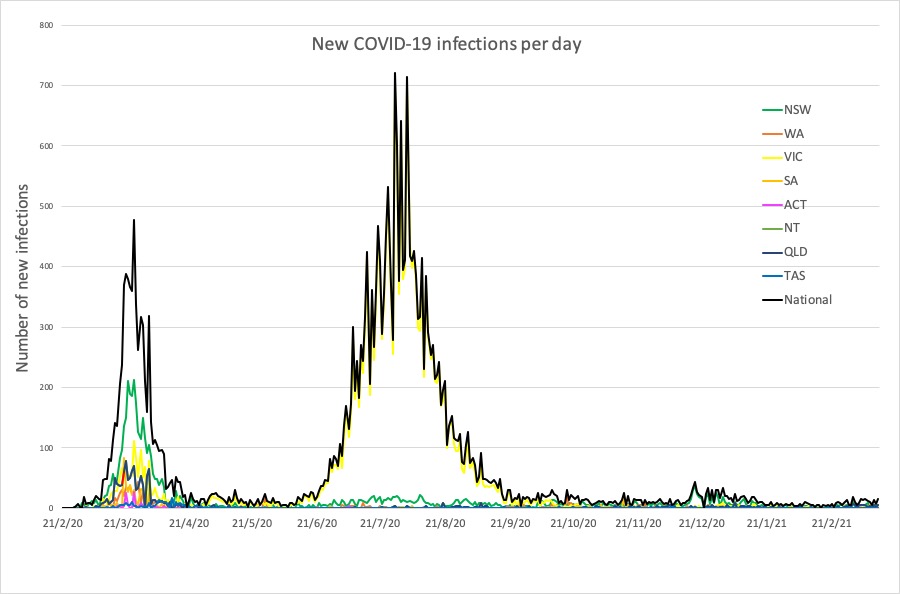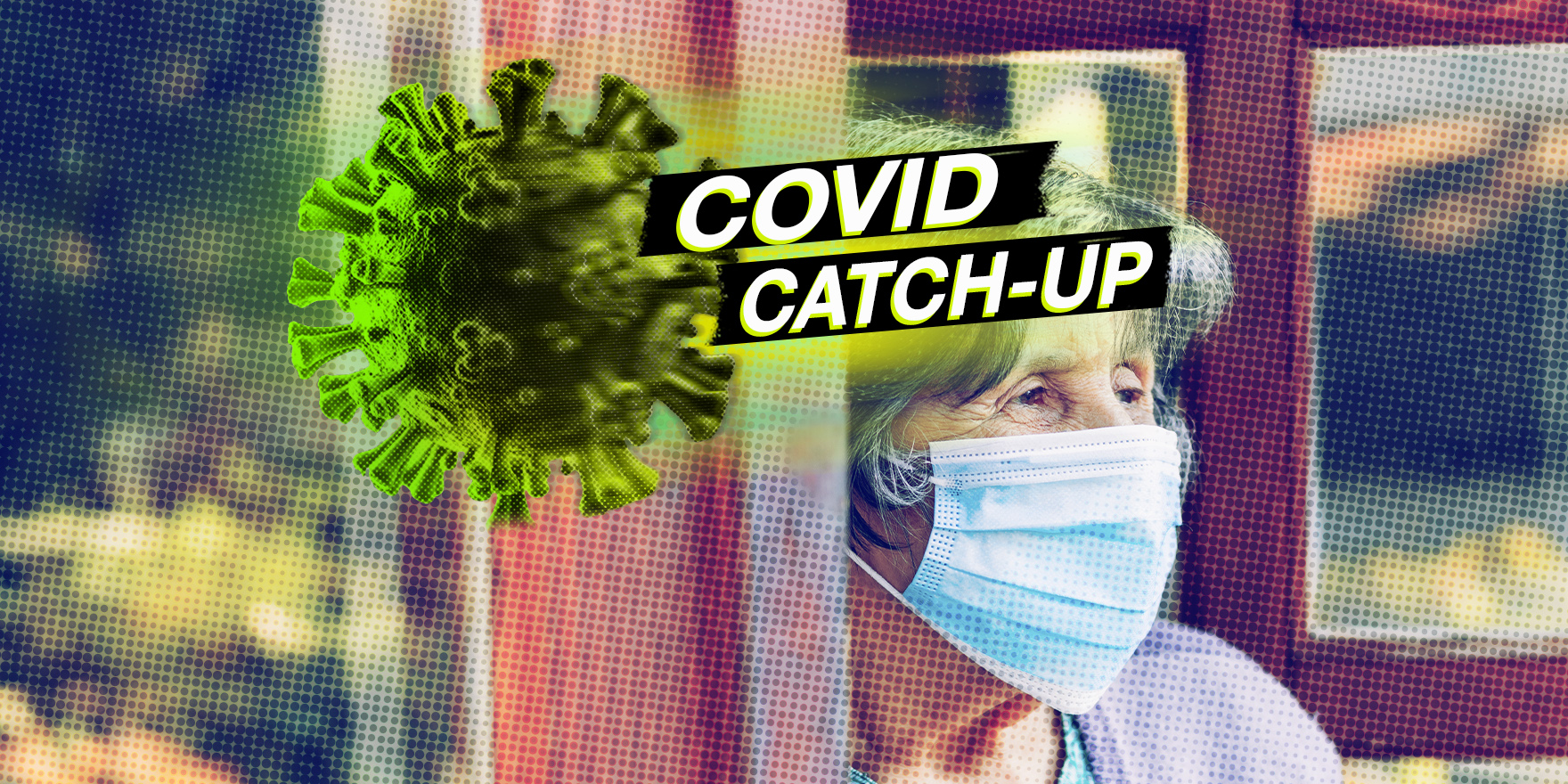And more than half of those with severe COVID-19 still show lung CT abnormalities four months later.
Welcome to The Medical Republic’s COVID Catch-Up.
It’s the day’s COVID-19 news in one convenient post. Email bianca@biancanogrady.com with any tips, comments or feedback.
18 March
- Previous SARS-CoV-2 infection reduces infection risk by around 80% but less in older people.
- Dyspnoea, fatigue and cognitive impairment persist for months after severe COVID-19.
- Sydney’s hotel quarantine under the microscope after further infections.
- New infections continue to rise around the world, but death rates are declining.
- Latest COVID-19 infection numbers from around Australia.
Previous infection with SARS-CoV-2 reduces the likelihood of reinfection by around 80%, but less so in older individuals, research suggests.
A study published in the Lancet details the results of a population-based cohort study which followed more than 11,000 people who tested positive for SARS-CoV-2 during the first wave of the pandemic in Denmark, to see how they fared in the second wave from September to December 2020.
Overall, 0.65% of those who were diagnosed in the first wave were reinfected in the second wave. When compared to the infection rate among nearly half a million people who were negative during the first surge, this suggested that the prior infection reduced their risk of second infection by around 80%.
However the reinfection rate was higher in those aged over 65 years, and previous infection only reduced the odds of second infection by 47%.
While the study did not address the impact of variants, the authors commented that “our data indicate that vaccination of previously infected individuals should be done because natural protection cannot be relied on.”
More than half of people hospitalised with severe COVID-19 still have lung abnormalities on CT and one in five have breathing difficulties four months after discharge, a study has found.
A cohort study of 478 people hospitalised with COVID-19, published in JAMA, found nearly one-third were still experiencing fatigue, one-fifth were experiencing respiratory symptoms and 16% still had dyspnoea four months later.
Three-quarters of those who were intubated had evidence of ground-glass opacity on lung CT, and some also had lung fibrotic lesions.
Sydney health authorities are working to understand how both a security guard and quarantined traveller at a hotel could both have contracted the more infectious UK strain of SARS-CoV-2 from another returned traveller – who had already tested positive – staying in the hotel.
The guard and both travellers were on the same floor of the Sofitel Wentworth hotel in Sydney. The guard and one traveller are being considered secondary infections, as the strain of SARS-CoV-2 that they are infected with has been linked by genomic sequencing to the primary infected traveller.
NSW Health said in a press release that each room had its own air-conditioning units, which did not connect to the corridor.
So far, none of the security guard’s close contacts has tested positive, and no further cases have been reported outside the hotel.
COVID-19 cases are on the rise around the world for a third week running, with the World Health Organisation reporting a 10% increase in new infections – representing around three million cases – in the past week.
Europe and the Americas account for 80% of new cases, but infections are increasing particularly rapidly in some of the Balkan nations, as well as in France, Italy, Poland and Sweden.
One bit of good news is that deaths from COVID-19 continue to decline globally, although they have increased in the eastern Mediterranean and western Pacific regions.
Here are the latest COVID-19 infection numbers from around Australia to 9pm Wednesday:
National – 29,153 with 909 deaths
ACT – 123 (0)
NSW – 5248 (7)
NT – 106 (1)
QLD – 1394 (6)
SA – 638 (2)
TAS – 234 (0)
VIC – 20,483 (0)
WA – 927 (1)



